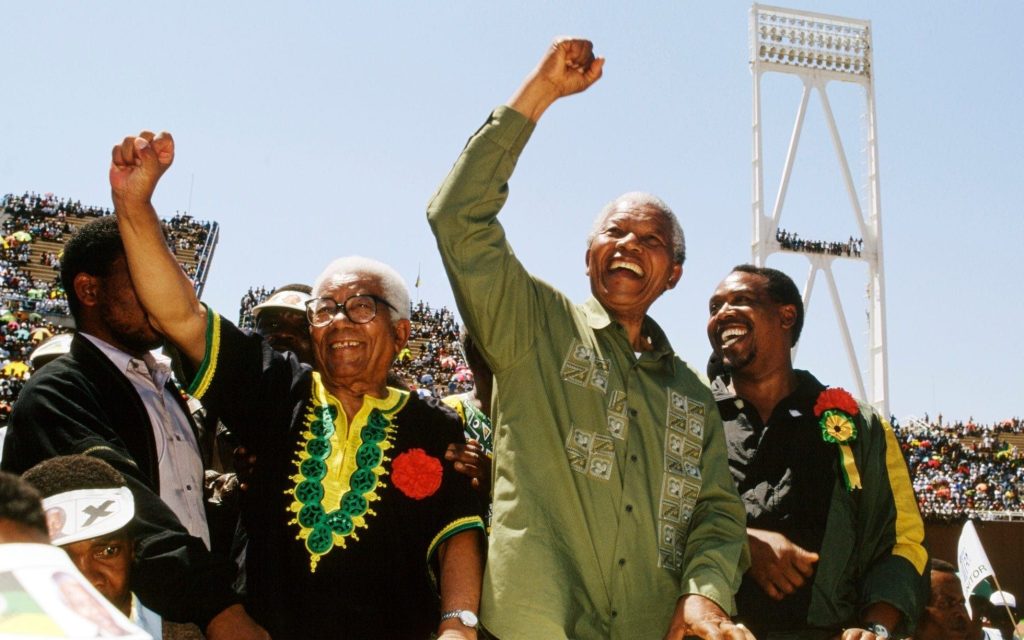Imagine stepping back into a time when the ink was still fresh on a document that would forever change the course of American history. National Freedom Day isn't just another date on the calendar; it's a pivotal moment that marks the end of an era of slavery and the dawn of a new age of liberty and equality. On February 1, we don't just remember the signing of the 13th Amendment; we celebrate the relentless spirit of those who fought tooth and nail for the freedom we often take for granted today. Initiated by Richard Robert Wright Sr., a visionary who himself knew the bitter chains of slavery, this day was set aside to not only honor the past but to pave a way for unity and understanding. With President Harry S. Truman giving it official recognition in 1948, National Freedom Day stands as a testament to the enduring struggle for justice and the power of one man's dream to inspire a nation.
Key Takeaway
Timeline
Day Activities
-
Morning Reflections: Kick off National Freedom Day with a moment of silence to honor those who fought tirelessly for freedom and equality. Schools and communities often host reflective gatherings, where stories of bravery and resilience from the era of slavery are shared. This solemn start sets a tone of gratitude and remembrance for the sacrifices made.
-
Educational Programs: Throughout the day, engaging workshops and seminars take center stage, aiming to enlighten participants about the historical significance of February 1. Experts and historians might delve into the intricacies of the 13th Amendment, shedding light on its impact and the ongoing journey toward racial equality. Interactive sessions encourage lively discussions, fostering a deeper understanding among attendees.
-
Community Service and Celebrations: Wrapping up, many folks participate in community service projects or attend celebratory events to honor National Freedom Day. These activities range from volunteering at local charities to attending cultural festivals that celebrate diversity and unity. It's a day filled with joy, reflection, and a collective commitment to furthering the cause of freedom and equality for all.
Interesting Facts
1. Origins in 1942
Former slave Richard Robert Wright Sr. initiated National Freedom Day to celebrate freedom and promote racial harmony.
2. 13th Amendment Celebration
Marks the signing of the 13th Amendment, which abolished slavery in the United States on December 6, 1865.
3. Presidential Recognition
In 1948, President Harry S. Truman officially recognized February 1 as National Freedom Day.
4. Aims for Equality
The day encourages Americans to remember the fight against slavery and to foster equality among all.
5. Educational Impact
Communities observe this day with programs and activities that highlight the importance of freedom and understanding.
Why We Love This Day
-
Celebrating progress and unity
On National Freedom Day, we're not just marking a date on the calendar; we're celebrating a monumental leap forward for humanity. Think about it: the 13th Amendment didn't just change laws; it transformed lives and laid the groundwork for progress in racial equality. This day serves as a reminder of how far we've come and the ongoing journey toward unity and understanding among all folks. -
Honoring sacrifices and resilience
Let's face it, freedom wasn't handed over; it was fought for with blood, sweat, and tears. National Freedom Day pays homage to the countless brave souls who stood up against the atrocity of slavery. It's about recognizing the resilience and sacrifices of those who dared to dream of a day when all individuals would be free. Their stories of courage and determination continue to inspire generations to keep pushing for justice and equality. -
Fostering education and reflection
Sure, National Freedom Day is about celebration, but it's also a prime time for education and reflection. Through various events and activities, folks get a chance to learn more about the struggles for freedom and the importance of maintaining it. Schools, communities, and organizations come together to spark conversations that challenge us to think about our roles in promoting equality and understanding in today's society. It's a day that encourages us to look back, reflect, and ask ourselves how we can contribute to a more inclusive and equitable world.
Past & Future Dates
| Month | Day | Year |
|---|---|---|
| FEBRUARY | 1 | 2022 |
| FEBRUARY | 1 | 2023 |
| FEBRUARY | 1 | 2024 |
| FEBRUARY | 1 | 2025 |
| FEBRUARY | 1 | 2026 |
| FEBRUARY | 1 | 2027 |
| FEBRUARY | 1 | 2028 |
FAQ
Why is February 1st National Freedom Day?
The day honors the signing by Abraham Lincoln of a joint House and Senate resolution that later became the 13th Amendment to the U.S. Constitution. President Lincoln signed the Amendment outlawing slavery on February 1, 1865.
What national day is on February 1?
The President may issue each year a proclamation designating February 1 as National Freedom Day to commemorate the signing by Abraham Lincoln on February 1, 1865, of the joint resolution adopted by the Senate and the House of Representatives that proposed the 13th amendment to the Constitution.
What is celebrated on February 1st?
February 1st also marks National Freedom Day and National Bubble Gum Day.
What does National Freedom Day recognize?
Major Wright chose February 1 as National Freemdom Day in recognition of the 13th Amendment. It was on this day in 1865 that President Abraham Lincoln signed a joint House and Senate resolution that would ultimately be ratified as the 13th Amendment to the Constitution.
